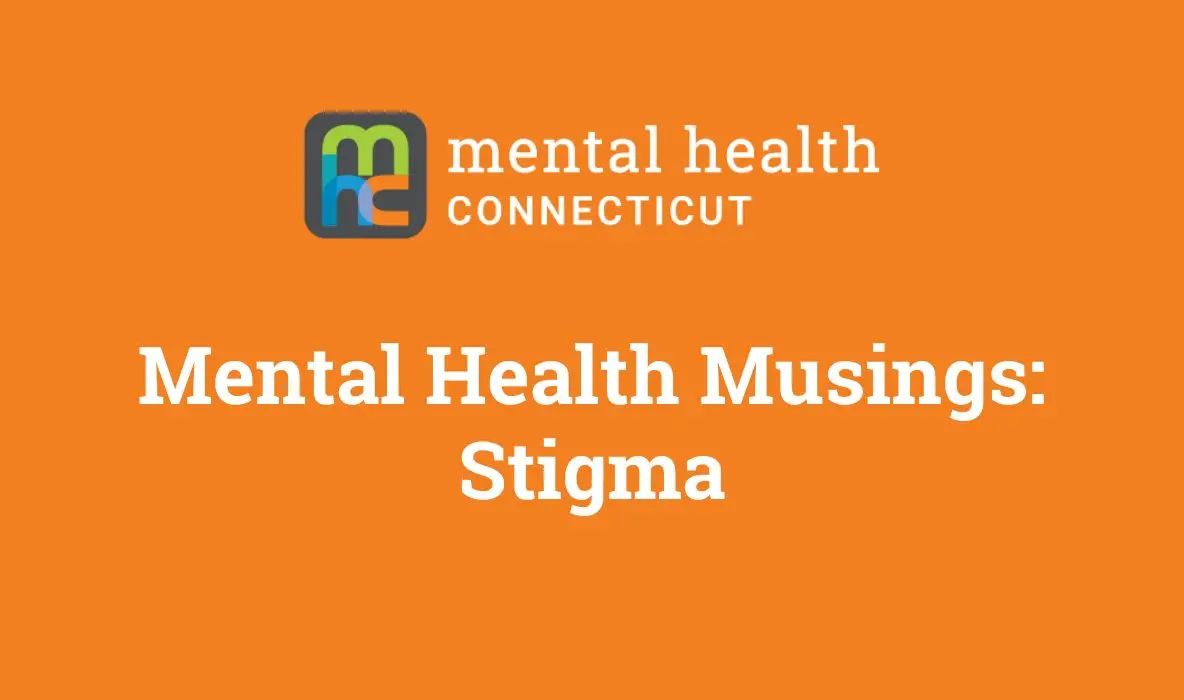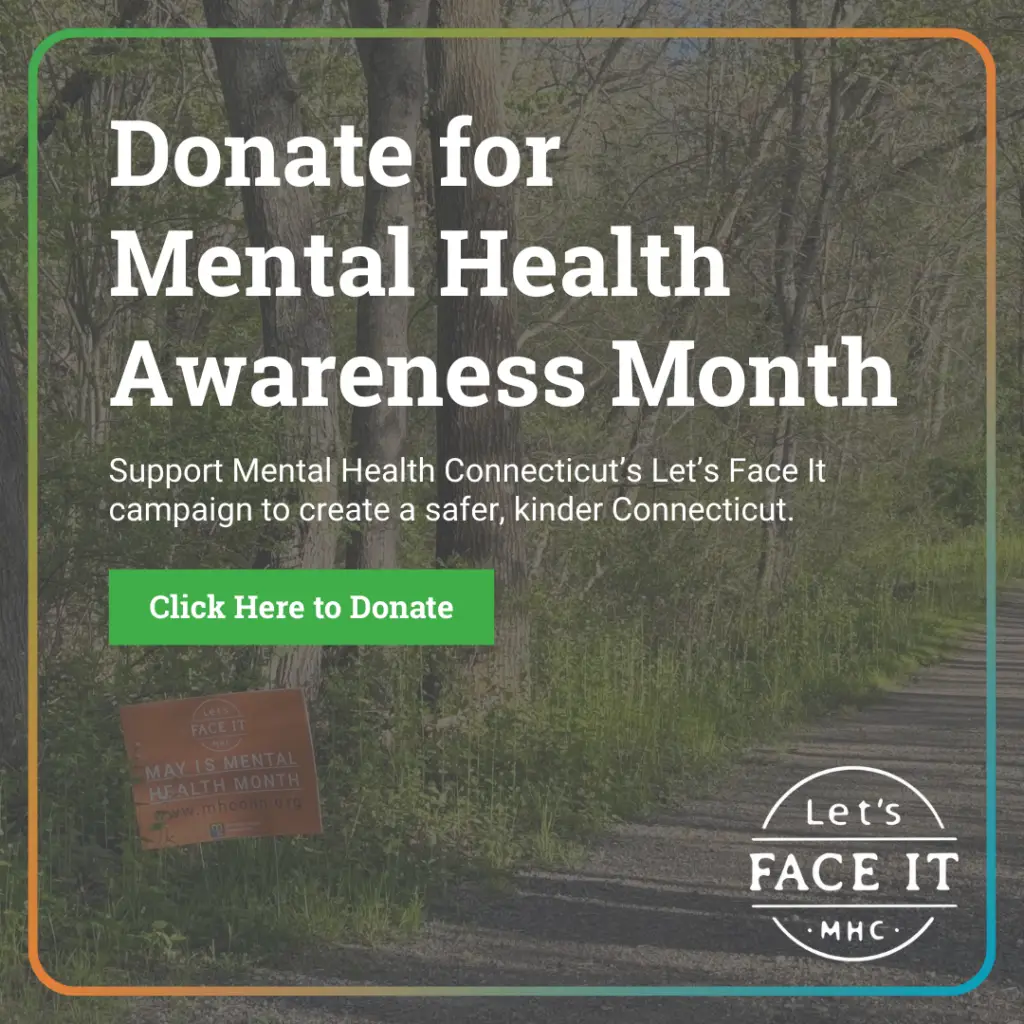CONTENT ALERT: Once again, I will be discussing stigma. Within this discussion, I will be including descriptions of individual encounters with stigma, ones that could be reminiscent of experiences in some readers’ own lives and that, therefore, might trigger strong emotions and/or unwanted memories.
I have written about stigma in my previous blog, of course. But stigma is sufficiently pervasive and persistent that it warrants more extended consideration. In this blog entry, I will try to provide an expanded description of different forms of mental health stigma and to go beyond general descriptions of stigma to help readers better appreciate what stigma looks like in concrete form. To do the latter, I will call upon what I learned from a diverse group of people with mental health conditions whom I surveyed and interviewed about their stigma experiences. Although these interviews and surveys were completed many years ago, I believe the encounters described are still representative of what happens today. (For those interested in a more detailed account of these survey/interview results, please see my book, “Telling Is Risky Business.”)
Stigma has many forms. One form involves the ways individuals talk about people with mental health conditions. For example, there are numerous slang terms for mental health conditions, and, like most slang applied to groups of people, the references are NOT terms of endearment. A study in England (Rose et al., 2007) asked 14-year-old students to provide terms to describe a person with mental illness and found that the largest number of the 250 offered terms fell into the category of “popular derogatory terms.” These included words such as “psycho,” “weird,” and “nuts,” as well as “freak” and “retard.” Moreover, there seems to be relatively little political correctness pressure to inhibit people from vocalizing these terms. As one of my study interviewees observed: “People will use the term wacko, crazy, nuts, those kinds of things that are terribly offensive about a person who has a mental illness.”
Furthermore, it is not just offensive slang that is widespread. People with mental health conditions also hear hurtful jokes about people with mental health conditions, disparaging remarks about their character, and even expressions of outright hostility toward them. Participants in our study reported overhearing condescending references to “those people,” and unfavorable characterizations of people with mental health conditions as undesirable, unlikeable, stupid, lazy, malevolent, undeserving, and more. These characterizations, moreover, came not just from strangers, but also from neighbors, co-workers, educators, religious communities, and even mental health professionals. One of our interviewees, for example, found, in medical school, that those with mental health conditions were often referred to as GOMERs (for “Get Out of My Emergency Room”).
Our society is also full of portrayals in the media that convey that those with mental health conditions are villainous, untreatable, and deserving of punitive actions to control or isolate them. Silence of the Lambs comes to mind. The mental health stories selected by news media are skewed toward (rare) incidents of violence and seldom highlight recovery or resilience. I hope to address these media portrayals at greater length in a future blog.
Stigma is manifest also in the ways people act toward those who have mental health conditions. This includes devaluing their ideas and abilities. Interviewees in our study described how others expressed doubt about their intelligence, competence, and reliability after learning they had a mental health condition. “It’s just assumed,” said one interviewee, “that I had nothing to say and that all my thoughts were deranged.” Another noted, “Although I had a 4.0 average in law school, I now find others explaining concepts to me as if I were a five-year old.” Esso Leete, a mental health advocate who has written extensively about her life with schizophrenia, has described this experience of being devalued in even more powerful and poetic terms: “I can talk, but I may not be heard. I can make suggestions, but they may not be taken seriously. I can report my thoughts, but they may be seen as delusions. I can recite experiences, but they may be interpreted as fantasies. To be a patient is to be discounted.” It is not surprising, then, that more than half of the respondents to our survey reported that they had been advised to lower their expectations in life because of their mental health condition and to accept life circumstances and careers well below their actual abilities and aspirations.
Even more common manifestations of stigma are rejection and avoidance. The experience of having others, including friends and co-workers, become more distant when mental disorder is known or revealed was mentioned often by our interviewees. They recounted how co-workers stopped inviting them for lunch, avoided passing by their desks at work, and shortened conversations with them. They described how members of their communities, including long-time friends, would no longer visit. “All of a sudden,” said one interviewee, “the phone quits ringing and [friends] quit coming to the house.” One participant reported the experience of having parents take their children out of her classroom when it became known that she had had psychiatric treatment. Another reported that neighbors would no longer allow their children to play at her home. Still others described how opportunities to give back to their communities were limited by exclusion of volunteer candidates with any kind of mental health treatment history. In addition to these experiences, there were occasions where our survey participants were directly ridiculed, teased, or berated about their mental health conditions.
It is important to note here that such rejecting behaviors were based primarily on the inaccurate ideas about, NOT on actual behaviors of or encounters with, the individuals to whom they were rerferring. Part of the frustrating nature of stigma is that it is based on negative stereotypes and expectations rather than on factual data or direct experience.
Stigma, of course, has significant harmful consequences. Not only does it cause hurt, offense, and sadness, but it contributes to people’s reluctance to acknowledge or seek help for mental health problems. It increases the isolation and discouragement that are just the opposite of what is needed for recovery. It generates anxiety as individuals worry about hurtful reactions should their mental health conditions become known. It denies people opportunities to improve their lives.
And encounters with stigma may lead to another particularly pernicious form of stigma, what is known as “self-stigma” or “internalized stigma.” When people with mental health conditions are surrounded by negative beliefs and attitudes, they may begin to accept and internalize those same views. They may begin to see themselves as weak, flawed, unemployable, blameworthy, deficient. Their self-esteem and motivation will be undermined. As Patricia Deegan, a clinical psychologist living with schizophrenia, once described it: “Slowly we internalized all the stigma and despair that every day surrounded us. We came to believe that we were as useless and as helpless and as hopeless as we were being treated.We learned to settle for less and less and actually began to believe that was all we could be.”
There is some good news, however. I am pleased to report that, over the many years I have focused on stigma, I have seen a steady growth in the number and sophistication of efforts to reduce stigma, including work by Mental Health Connecticut. My impression, also, is that there have been improvements over the past couple of decades in general understanding and acceptance of mental health conditions. I believe also that people are now more thoughtful about the ways they talk about and act toward those with these conditions.
But much remains to be done. I hope, in future blogs, to describe some of the efforts to confront and reduce stigma, as well as some of the things each of us can do to help achieve those goals.
Otto Wahl, Ph.D.
MHCT Development Committee Member








